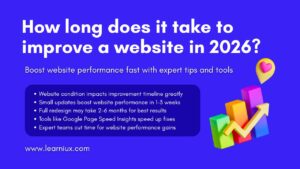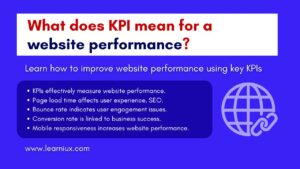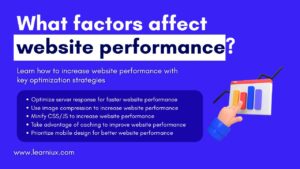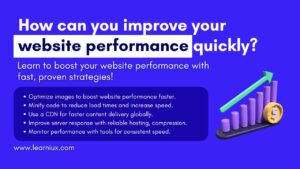Introduction
Backlinks are a pillar of off-page SEO, acting as a vote of trust from one website to another. Search engines like Google view backlinks as an indicator of a website’s credibility, authority, and relevance. However, not all backlinks are created equal. Ethical backlink building focuses on acquiring links through legitimate, value-driven methods that align with search engine guidelines. This approach ensures long-term SEO success without the risk of penalties due to manipulation tactics.
Ethical backlinks increase a website’s ranking potential while building trust with the audience and search engines. Unlike black-hat techniques like buying or spamming links, ethical methods prioritize quality, relevance, and user value. This article explores actionable strategies, best practices, and tools that can help you build backlinks ethically, ensuring sustainable growth for your website.
The Importance of Backlinks
Backlinks are hyperlinks from external websites that point to your site. They signal to search engines that your content is trustworthy and valuable. High-quality backlinks from authoritative websites can boost your domain authority, improve search rankings, and increase referral traffic. In off-page SEO, backlinks are a key ranking factor, often outweighing other metrics like social signals or brand mentions.
However, the quality of backlinks is more important than the quantity. A single backlink from a reputable, niche-related site can be more effective than dozens of low-quality links. Ethical backlink strategies focus on acquiring links naturally by providing value to users and other websites.
Ethical vs. Unethical Practices
Ethical backlink building follows search engine guidelines, such as Google’s Webmaster Guidelines, which emphasize acquiring links through quality rather than manipulation. Unethical practices such as buying links, using private blog networks (PBNs), or engaging in link farms can result in penalties, including deindexing or ranking drops.
Ethical practices prioritize transparency, relevance, and user-centered content. For example, it is ethical to create valuable resources that others naturally want to link to, while spamming comments with links is not. By focusing on ethical practices, you build a sustainable backlink profile that withstands algorithm updates.

Strategies for Building Backlinks
Building backlinks ethically requires creativity, persistence, and a commitment to quality. Below are proven strategies for getting high-quality backlinks that will boost your off-page SEO.
Create High-Quality Content for Natural Backlinks
High-quality content is the foundation of ethical backlink building. When you create valuable, unique, and engaging content, other websites are more likely to link to it naturally. Content types that attract backlinks include:
- In-depth guides and tutorials: Comprehensive resources that solve problems or provide actionable insights.
- Original research and data: Studies, surveys, or statistics that provide unique insights.
- Infographics and visual content: Shareable visuals that simplify complex information.
- Case studies and success stories: Real-world examples that resonate with your audience.
To maximize your backlink potential, make sure your content is well-researched, easy to read, and optimized for SEO. Promote your content through email newsletters, social media, and industry forums to increase its visibility and attract organic backlinks.
Guest Posting to Get Backlinks
Guest posting involves writing articles for other websites in your niche, often including a backlink to your site in the author’s bio or content. This strategy builds backlinks while establishing your authority and reaching new audiences.
To be successful at guest posting:
- Identify reputable websites: Target blogs with high domain authority and relevance to your niche.
- Pitch unique topics: Propose ideas that align with the host site’s audience and content goals.
- Write high-quality articles: Provide value to readers to encourage editors to accept your posts.
- Include strategic backlinks: Avoid over-optimization, and place links naturally in your content or bio.
Focus on quality over quantity. A few guest posts on an authoritative site are more valuable than numerous posts on a low-quality blog.
Broken Link Building for Backlinks
Broken link building involves finding broken (404) links on other websites and suggesting your content as a replacement. This strategy benefits both parties: the website owner fixes the broken link and you get a backlink.
Steps to building a broken link:
- Find a broken link: Use tools like Ahrefs or Check My Links to identify broken links on relevant websites.
- Create replacement content: Develop content that matches or improves on the topic of the broken link.
- Contact webmasters: Politely inform them about the broken link and suggest your content as a replacement.
This method is ethical because it provides value to website owners and gets you backlinks from authoritative sources.
Resource Page Outreach for Backlinks
Resource pages are curated lists of useful links on a specific topic. Many websites maintain resource pages to provide value to their audience, which gives them prime opportunities for backlinks.
To take advantage of resource pages:
- Identify relevant resource pages: Search for terms like “SEO Resources” or “SEO Useful Links.”
- Assess the quality of the page: Make sure the page is on a reputable, relevant website.
- Create link-worthy content: Develop resources like guides, tools, or templates that match the theme of the page.
- Create personalized outreach: Contact the website owner, explaining why your content deserves to be featured.
This strategy works because it aligns with the website’s goal of providing valuable resources to its audience.
HARO and Expert Quotes for Backlinks
Help Reporters Out (HARO) connect journalists with sources for their articles. By responding to HARO questions, you can provide expert quotes and earn backlinks from high-authority publications.
To succeed at HARO:
- Sign up for HARO: Register as a source and monitor daily questions.
- Respond quickly: Journalists work to tight deadlines, so quick responses are important.
- Provide concise, valuable insights: Provide a unique perspective to increase your chances of being cited.
- Include a link to your site: If selected, make sure your quote includes a backlink to your website.
This method builds backlinks while positioning you as an industry expert.
Social Media Promotion to Attract Backlinks
Social media platforms increase the reach of your content, increasing your chances of getting backlinks. By sharing your content on platforms like X, LinkedIn, or Reddit, you can grab the attention of bloggers, journalists, and website owners.
Tips for Social Media Promotion:
- Share Interesting Snippets: Post teasers, visuals, or key insights from your content.
- Interact with Communities: Participate in niche-specific groups or forums to build relationships.
- Use Hashtags Strategically: Increase visibility with relevant, trending hashtags.
- Collaborate with Influencers: Partner with industry influencers to boost your content.
While social media itself is not a direct backlink source, it does drive traffic and visibility, which leads to organic backlinks.
Influencer Collaboration for Backlinks
Collaborating with influencers in your niche can help you get backlinks from their blogs, social media, or websites. Influencers often have established audiences and high-authority platforms, making their backlinks valuable.
Ways to Collaborate:
- Co-create content: Develop blog posts, videos, or infographics together.
- Interview influencers: Feature them on your site and ask them to share content with a backlink.
- Sponsor content: Ethically sponsor influencer content that includes a backlink to your site.
Make sure the collaboration is transparent and provides mutual value to maintain ethical standards.
Directory Submissions for Relevant Backlinks
Submitting your website to reputable, niche-specific directories can help build backlinks while improving local SEO. Avoid low-quality or spammy directories, as they can hurt your SEO.
Steps for Directory Submission:
- Search for high-quality directories: Focus on industry-specific or local directories with high authority.
- Complete your profile: Provide accurate business information and a link to your site.
- Monitor for relevance: Make sure the directory is aligned with your niche and audience.
Include niche directories like Yelp for local businesses or Clutch for B2B services.
Best Practices for Ethical Backlinks
To maximize the impact of your backlink-building efforts, follow these best practices to ensure ethical and effective results.
Focus on relevance and authority
Backlinks from relevant, authoritative websites carry more weight in search engines. Prioritize links from sites within your industry or niche, as they demonstrate local authority. For example, a backlink from a well-known marketing blog is more valuable for a digital marketing website than a generic directory.
Use tools like Moz or Ahrefs to check a website’s domain authority (DA) and relevance before pursuing a backlink. Avoid links from unrelated or low-quality sites, as they can weaken your SEO efforts.
Avoid Common Mistakes in Backlink Acquisition
Common pitfalls in backlink building include:
- Over-optimization: Using exact-match anchor text too often can lead to penalties.
- Low-quality links: Links from spammy or irrelevant sites can hurt your rankings.
- Neglecting follow-up: Failing to cultivate relationships with website owners reduces future opportunities.
- Neglecting content quality: Poor content rarely attracts backlinks, even when it has reach.
Stay ethical by focusing on user value and avoiding manipulation tactics.
Measure backlink quality
Monitor your backlink profile regularly to ensure quality and relevance. Use metrics like:
- Domain Authority (DA): Indicates the overall authority of the site.
- Relevance: Measures how closely the linking site matches your niche.
- Traffic potential: Evaluates whether the backlink drives referral traffic.
- Anchor text diversity: Ensure natural, varied anchor text to avoid penalties.
Tools like Ahrefs, SEMrush, or Google Search Console can help you track and analyze your backlinks.
Tools and Resources for Managing Backlinks
Effective backlink management requires the right tools to identify opportunities, track progress, and analyze results. Below are some popular options.
Popular Tools for Backlink Analysis
- Ahrefs: Offers comprehensive backlink analysis, competitor research, and outreach tracking.
- SEMrush: Provides backlink audits, gap analysis, and link-building tools.
- Moz Link Explorer: Tracks domain authority and backlink profiles.
- Majestic SEO: Specializes in backlink metrics like trust flow and citation flow.
- Google Search Console: Monitors backlinks and identifies issues for free.
These tools help you evaluate backlink quality, find opportunities, and monitor your SEO performance.
Free and Paid Options
- Free tools: Google Search Console, Ubersuggest, and Moz’s free Link Explorer offer basic backlink insights.
- Paid tools: Ahrefs, SEMrush, and Majestic offer advanced features for in-depth analysis and outreach.
Invest in paid tools if your budget allows, as they offer more robust data and automation to enhance your efforts.
Conclusion
Building backlinks ethically is a long-term investment in your website’s SEO success. By focusing on high-quality content, strategic outreach, and reputable platforms, you can earn backlinks that will boost your rankings and authority. Avoid shortcuts like buying links or using spammy tactics, as they risk penalties and damage your credibility.
Start by auditing your current backlink profile, identifying gaps, and implementing the strategies outlined above. Experiment with guest posting, broken link building, and HARO to diversify your backlink sources. Use tools to monitor your progress and refine your approach over time. With patience and persistence, ethical backlink building will lead to sustainable growth for your website.
FAQs
What are ethical backlinks and why are they important for off-page SEO?
Ethical backlinks are links to your site from external websites that are obtained through legal, value-driven methods that comply with search engine guidelines. They are important for off-page SEO because they signal to search engines like Google that your content is trustworthy and authoritative. High-quality backlinks from relevant sites improve your website’s domain authority and search rankings. Unlike unethical methods like buying links, ethical backlinks ensure long-term SEO success without the risk of penalties. They also drive referral traffic, increasing your audience reach. By focusing on quality and relevance, ethical backlinks build a sustainable online presence. Strategies like creating valuable content or guest posting help you naturally acquire these links. Ethical practices prioritize user value, building trust with both your audience and search engines. Monitoring backlink quality with tools like Ahrefs or Moz ensures that they contribute effectively to SEO. Overall, ethical backlinks are the cornerstone of a strong off-page SEO strategy.
How can high-quality content help you get natural backlinks?
High-quality content attracts natural backlinks because it provides value that other websites want to reference. Content like in-depth guides, original research, or infographics is more likely to be linked to by bloggers, journalists, or industry experts. When your content solves a problem or offers unique insights, it becomes a go-to resource in your niche. Promoting this content on social media or industry forums increases its visibility, which encourages organic links. For example, a well-researched article shared on a platform like X can attract the attention of authoritative sites. The key is to create content that is informative, engaging, and shareable. Including visuals or data increases its appeal, making it link-worthy. Consistently creating high-quality content builds your reputation, which in turn leads to more backlinks over time. Tools like Google Analytics can track which content attracts the most links. After all, valuable content naturally earns backlinks without manipulation.
What is guest posting and how does it help build backlinks?
Guest posting involves writing articles for other websites in your niche, which usually include a backlink to your site. It helps build backlinks by placing your links on authoritative, relevant platforms, which boosts your SEO. By contributing valuable content, you establish credibility and reach new audiences. To be successful, target reputable blogs with high domain authority and cover unique, relevant topics. Backlinks, often in the author’s bio or content, drive traffic and signal authority to search engines. Quality is more important than quantity, so focus on well-written posts for trusted sites. Building relationships with editors can lead to more guest posting opportunities. Avoid over-optimizing anchor text to keep links natural and ethical. Guest posting also increases your brand’s visibility in your industry. Overall, it’s a powerful strategy for gaining backlinks while demonstrating expertise.
How does broken link building work to gain backlinks?
Broken link building involves finding broken (404) links on other websites and suggesting your content as a replacement. This strategy works by providing value to website owners and earning you backlinks. Start by using tools like Ahrefs or Check My Links to identify broken links on relevant sites. Next, create high-quality content that matches or improves on the topic of the broken link. Contact the website owner via a polite email, point out the broken link, and offer your content as an alternative. This approach is ethical because it helps webmasters fix their site and benefits your SEO. Success depends on targeting authoritative, niche-related websites. Personalizing your outreach increases the chances of acceptance. Broken link building is time-consuming but effective for gaining high-quality backlinks. It’s a win-win strategy that enhances both user experience and SEO.
What role do resource pages play in getting backlinks?
Resource pages are curated lists of useful links on a specific topic, often hosted by authoritative websites. They play a key role in getting backlinks by giving you the opportunity to feature your content on relevant, high-quality sites. To take advantage of them, search for resource pages in your niche using terms like “[your niche] resources.” Create valuable content, such as guides or tools, that match the theme of the page. Contact the website owner with a personalized email explaining why your content deserves inclusion. These backlinks are valuable because resource pages are designed to provide user value while adhering to ethical SEO practices. Make sure the target page is on a reputable site to maximize SEO benefits. Building relationships with site owners can lead to more opportunities. This strategy is effective for getting backlinks from trusted sources. It takes effort but pays off in the long run.
How can HARO help you get backlinks from authoritative sites?
HARO (Help a Reporter Out) connects journalists with sources, which gives them the opportunity to get backlinks from high-authority publications. By answering HARO questions, you provide expert quotes that journalists can include in their articles, often with a backlink to your site. Sign up for HARO and monitor daily questions related to your niche. Craft concise, valuable responses to increase your chances of getting quoted. Quick responses are important because journalists have tight deadlines. If selected, your quotes and backlinks appear in reputable outlets, which increases your SEO and credibility. This method is ethical because it relies on real expertise. Building a track record of helpful responses can lead to more opportunities. HARO is a powerful way to get backlinks by positioning yourself as an industry expert. It requires consistency but provides significant SEO benefits.
How does social media promotion contribute to getting backlinks?
Social media promotion increases the visibility of your content, which increases your chances of attracting backlinks from other websites. By sharing compelling snippets, visuals, or insights on platforms like X or LinkedIn, you reach bloggers, journalists, and site owners. Participating in specific groups or forums builds relationships that can lead to backlinks. Using relevant hashtags increases the reach of your content, drawing the attention of potential linkers. For example, a viral post on X can grab the attention of bloggers, prompting them to link to your content. Social media doesn’t directly generate backlinks, but it does drive traffic that encourages organic linking. Consistently interacting with your audience builds trust and authority. Collaborate with influencers to increase visibility. Monitor social shares with tools like BuzzSumo to track influence. This strategy increases your chances of getting natural, ethical backlinks.
Why is influencer collaboration effective for building backlinks?
Influencer collaboration is effective for building backlinks because influencers often have high-authority platforms and engaged audiences. Partnering with influencers to co-create content like blog posts or videos can lead to backlinks from their website or social media. For example, interviewing influencers and asking them to share content can lead to backlinks. These links are valuable because of the influencer’s credibility and the trust of the audience. Ethical collaborations focus on mutual value, such as co-branded content that benefits both parties. Transparency is key to maintaining ethical standards. Targeting influencers in your niche ensures relevance, which search engines prefer. Building long-term relationships with influencers can lead to ongoing backlink opportunities. This strategy increases both SEO and brand visibility. It requires investment but provides high-quality backlinks.
What are the best practices for ensuring backlink quality?
Ensuring backlink quality involves prioritizing relevance, authority, and ethical acquisition practices. Focus on backlinks from websites in your niche to signal local authority to search engines. Use tools like Ahrefs or Moz to check a site’s domain authority before following a link. Avoid low-quality or spammy sites, as they can hurt your SEO. Vary your anchor text to keep links natural and avoid over-optimization penalties. Regularly audit your backlink profile to identify and disavow toxic links using Google Search Console. Build relationships with reputable site owners for sustainable link-building. Monitor metrics like referral traffic and link relevance to assess impact. Ethical practices like creating valuable content ensure long-term backlink quality. These steps help maintain a strong, penalty-free backlink profile.
What tools can help manage and analyze backlinks?
Tools like Ahrefs, SEMrush, Moz Link Explorer, and Majestic SEO are essential for managing and analyzing backlinks. Ahrefs offers comprehensive backlink audits, competitor analysis, and outreach tracking. SEMrush provides gap analysis and link-building tools to identify opportunities. Moz tracks domain authority and spam scores to ensure link quality. Majestic SEO focuses on metrics like Trust Flow for in-depth analysis. Google Search Console is a free tool for monitoring backlinks and identifying issues. These tools help assess backlink relevance, authority, and traffic potential. Free options like Ubersuggest offer basic insights, while paid tools offer advanced features. Regular analysis ensures that your backlink profile remains strong and ethical. Choosing the right tool depends on your budget and SEO goals.





















































